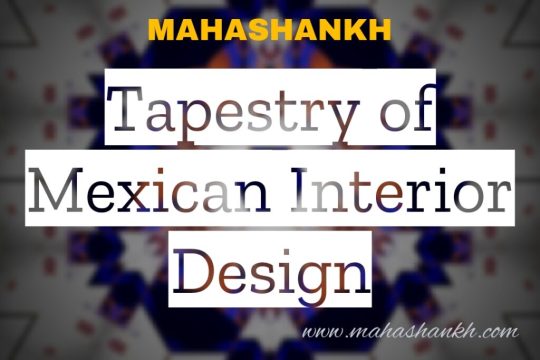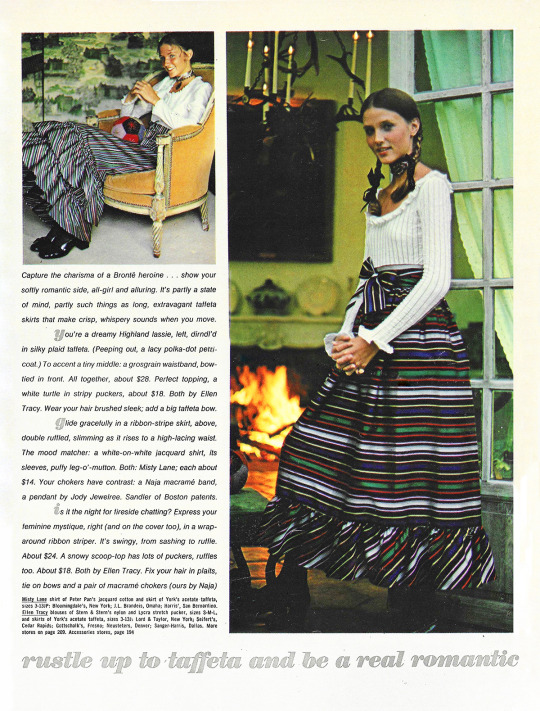#Boho-chic
Explore tagged Tumblr posts
Text


starter home bedroom for a young couple - made in one of my homes that I build in Newcrest
Gallery ID : unes3
8 notes
·
View notes
Text
Spring Trends: Bohemien

View On WordPress
#bohemien#boho-chic#chic#consulentedimmagine#fashion#moda#Palmanova#primavera#sfilate#spring SS2024#springtrends#tendenze#thechicadvisor
1 note
·
View note
Text
TOP LUXURY INTERIOR DESIGN COUNTRIES IN THE WORLD-2024

Demand of interior design in the world
Trends and demands in the field can change over time due to various factors such as economic conditions, cultural shifts, and technological advancements. Several factors contribute to the demand for interior design: - Real Estate and Construction Boom: Economic growth and increased construction activities often lead to a higher demand for interior design services. As new buildings are constructed, there is a need for well-designed interiors. - Renovation and Remodeling: Homeowners and businesses frequently seek interior designers when renovating or remodeling their spaces. This can be driven by changing tastes, functional needs, or the desire to update outdated designs. - Commercial Spaces: The demand for interior design extends beyond residential properties to commercial spaces such as offices, hotels, restaurants, and retail stores. Businesses recognize the importance of creating appealing and functional spaces to attract customers and improve employee productivity. - Focus on Wellness and Sustainability: There is an increasing awareness of the impact of the built environment on well-being. Interior designers who incorporate principles of wellness and sustainability into their designs may find a growing demand for their services. - Technological Advances: Technology, such as virtual reality (VR) and augmented reality (AR), has started to play a role in interior design. Clients may seek designers who can provide immersive experiences or use technology to visualize designs before implementation. - Globalization: As the world becomes more interconnected, there is a growing appreciation for diverse design styles and cultural influences. Interior designers with a global perspective may find opportunities to work on projects that incorporate a variety of design elements. Demand of interior design in the world The demand for interior design is steadily increasing on a global scale, driven by several factors: Top 30 Interior Design Countries 16. Exploring the Rich Tapestry of Mexican Interior Design: A Fusion of Tradition and Elegance 17. The Enchanting World of Moroccan Interior Design: A Tapestry of Intricate Tilework, Vibrant Accents, and Rich Textures Embracing Dutch Design: The Minimalist Beauty of Interior Design in the Netherlands A Breath of Fresh Air: The Serene Beauty of New Zealand Interior Design The Art of Hygge: Exploring the Inviting Interior Design of Norway The Enchanting Fusion: Exploring the Unique Interior Design of Portugal The Pinnacle of Urban Elegance: Interior Design in Singapore A Tapestry of Cultures: Exploring the Rich Interior Design of South Africa Vibrant Elegance: The Allure of Spanish Interior Design Timeless Simplicity: The Essence of Swedish Interior Design The Harmony of Tradition and Modernity: Thai Interior Design Unveiled Timeless Elegance: Unveiling the Ottoman-Inspired Opulence of Turkish Interior Design The Mosaic of Styles: Exploring the Diverse Interior Design of the United Kingdom A Symphony of Styles: Navigating the Diverse Interior Design of the United States Fusion Harmony: The Enchanting Blend of French Colonial and Vietnamese Design
The demand for interior design is steadily increasing on a global scale, driven by several factors:
- Rising disposable income: As economies grow and living standards improve, people have more money to spend on discretionary items like home improvement and decoration. - Urbanization: The increasing concentration of people in cities is leading to a higher demand for smaller living spaces, which need to be optimized for functionality and aesthetics. - Focus on well-being: People are becoming more aware of the impact of their environment on their well-being, and are seeking to create homes that are comfortable, relaxing, and inspiring. - Personalization: There is a growing trend towards personalization, and people are looking for ways to make their homes reflect their unique style and personality. - Technology: Advances in technology are making it easier and more affordable to design and furnish homes. For example, online platforms allow people to browse and purchase furniture and decor from around the world. The growth of the interior design market is reflected in the following statistics: - The global interior design market is expected to reach USD 161.1 billion by 2027, growing at a CAGR of 4.87%. - The Asia Pacific region is expected to be the fastest-growing market, driven by the economic growth of countries like China and India. - The luxury interior design market is also expected to grow at a healthy rate, as wealthy individuals increasingly invest in high-end design services. The demand for interior designers is also increasing, as people recognize the value of professional expertise in creating beautiful and functional spaces. Interior designers can help clients with a variety of tasks, such as: - Developing a design concept - Selecting furniture and finishes - Creating space plans - Managing budgets and timelines The job outlook for interior designers is positive, with the Bureau of Labor Statistics projecting a 7% growth in employment from 2020 to 2030. Overall, the demand for interior design is expected to continue to grow in the coming years, driven by a combination of economic, social, and technological factors. This is a positive sign for the interior design industry and for those who are considering a career in this field. Here are some additional factors that are influencing the demand for interior design: - Sustainability: There is a growing demand for sustainable design practices, as people become more aware of the environmental impact of their choices. - Technology: Virtual reality and augmented reality are being used to create immersive design experiences, which can help clients visualize their finished spaces. - E-commerce: The rise of online shopping is making it easier for people to find and purchase furniture and decor from around the world. These factors are all contributing to the evolution of the interior design industry, and they are likely to continue to shape the demand for interior design services in the future. To get the most accurate and up-to-date information on the current demand for interior design, it's recommended to refer to industry reports, market analyses, and professional associations in the field. Keep in mind that regional variations and economic conditions can also impact the demand for interior design services.
Top 30 Interior Design Countries
Determining the top 30 interior design countries in the world is subjective and depends on various factors like design history, cultural influences, contemporary trends, and individual preferences. However, here are 30 countries renowned for their significant contributions to the world of interior design, listed in alphabetical order: Argentina: Known for its bold use of color, textured walls, and eclectic mix of European and Latin American influences. Australia: Embraces a relaxed, coastal aesthetic with natural materials, clean lines, and emphasis on outdoor living. Belgium: Renowned for its Art Deco heritage, minimalist Scandinavian-inspired designs, and focus on functionality. Brazil: Showcases vibrant colors, tropical patterns, and unique handcrafted furniture, blending Portuguese and indigenous influences. Canada: Combines natural elements with modern accents, often featuring clean lines, exposed wood, and pops of color. China: Offers a vast array of styles, from traditional Ming Dynasty aesthetics to contemporary high-tech interiors. Colombia: Blends colonial architecture with vibrant colors, artisanal textiles, and lush greenery. Denmark: Pioneered the minimalist "hygge" style, emphasizing functionality, natural materials, and cozy atmospheres. France: Celebrated for its elegant and sophisticated interiors, often featuring classic furniture, antiques, and rich textures. Germany: Known for its Bauhaus-inspired approach, emphasizing clean lines, geometric shapes, and functionality. Greece: Features whitewashed walls, blue accents, natural materials, and traditional elements inspired by its Mediterranean heritage. India: Showcases a rich tapestry of styles, from Mughal-inspired opulence to vibrant textiles and handcrafted furniture. Indonesia: Blends traditional craftsmanship with modern elements, featuring natural materials like bamboo and intricate wood carvings. Italy: Renowned for its timeless elegance, showcasing classic furniture, marble accents, and intricate details. Japan: Pioneered minimalist Wabi-sabi aesthetics, emphasizing natural materials, simplicity, and imperfect beauty. Mexico: Features vibrant colors, handcrafted tiles, traditional textiles, and a blend of indigenous and Spanish influences. Morocco: Known for its intricate tilework, colorful accents, and rich textures, inspired by Islamic and Berber traditions. Netherlands: Embraces a minimalist Dutch design aesthetic, featuring clean lines, functionality, and pops of color. New Zealand: Showcases a relaxed, natural aesthetic with emphasis on sustainable materials, open spaces, and connection to nature. Norway: Combines Scandinavian minimalism with cozy elements, featuring natural materials, warm textures, and pops of color. Portugal: Blends Moorish and Mediterranean influences, featuring colorful tiles, hand-painted ceramics, and rustic charm. Singapore: Embraces a modern, cosmopolitan aesthetic with high-tech elements, clean lines, and luxurious materials. South Africa: Showcases a unique blend of African influences, colonial architecture, and contemporary design elements. Spain: Renowned for its bold use of color, intricate tilework, and blend of Moorish, Baroque, and contemporary styles. Sweden: Pioneered the minimalist Scandinavian design, featuring clean lines, natural materials, and functional furniture. Thailand: Blends traditional elements with modern influences, featuring intricate carvings, silk textiles, and colorful accents. Turkey: Showcases Ottoman-inspired opulence with rich textiles, handcrafted woodwork, and intricate tilework. United Kingdom: Offers a diverse range of styles, from traditional English country houses to modern urban lofts. United States: Embraces a melting pot of styles, from coastal California bungalows to New York City penthouses. Vietnam: Blends French colonial influences with traditional Vietnamese elements, featuring natural materials, dark wood accents, and pops of color.
16. Exploring the Rich Tapestry of Mexican Interior Design: A Fusion of Tradition and Elegance

MEXICAN INTERIOR DESIGN Mexico, a country renowned for its vibrant culture and diverse history, has made a profound impact on the world of interior design. The distinctive aesthetic that characterizes Mexican interiors is a captivating blend of vibrant colors, intricate handcrafted tiles, traditional textiles, and a harmonious fusion of indigenous and Spanish influences. In this article, we will delve into the unique features that define Mexican interior design, creating spaces that exude warmth, charm, and a deep connection to the country's rich heritage. Vibrant Colors: One of the most striking aspects of Mexican interior design is the bold and lively color palette that dominates spaces. Inspired by the vibrant hues found in nature, Mexican interiors often feature a kaleidoscope of colors such as deep reds, terracottas, yellows, blues, and greens. These colors are not only visually stunning but also reflect the energy and passion deeply embedded in Mexican culture. Whether it's the cheerful tones of Talavera tiles or the vivid hues of woven textiles, color plays a pivotal role in creating an inviting and dynamic atmosphere. Handcrafted Tiles: Mexican tiles, particularly the renowned Talavera tiles, are a hallmark of the country's interior design. These hand-painted ceramic tiles boast intricate patterns, geometric shapes, and vibrant colors that tell stories of Mexican craftsmanship. From kitchen backsplashes to decorative elements on stair risers and walls, Talavera tiles infuse spaces with a sense of authenticity and history. The meticulous artistry involved in creating these tiles adds a touch of elegance to any interior. Traditional Textiles: The use of traditional textiles, such as serapes, rebozos, and embroidered fabrics, is another key feature of Mexican interior design. These textiles showcase the rich cultural heritage of indigenous communities, incorporating bold patterns and symbolic motifs. Vibrant textile artistry is often displayed in items like throw pillows, blankets, and wall hangings, bringing warmth and character to living spaces. Indigenous and Spanish Influences: Mexican interior design is a harmonious fusion of indigenous and Spanish influences, reflecting centuries of cultural exchange. From rustic wooden furniture reminiscent of colonial Spanish haciendas to the use of indigenous materials like adobe and clay, the blend is seamless. Arched doorways, wrought-iron details, and hand-carved wooden furnishings contribute to an aesthetic that seamlessly integrates the best of both worlds. Mexican interior design is a celebration of color, craftsmanship, and cultural diversity. It weaves together a tapestry of traditions, creating spaces that are not only aesthetically pleasing but also deeply rooted in history. The vibrant colors, handcrafted tiles, traditional textiles, and the synthesis of indigenous and Spanish influences all contribute to an inviting and distinctive style that continues to captivate admirers around the world. Embracing Mexican design elements in your own space can bring a touch of the country's rich cultural heritage into your daily surroundings, creating an environment that is both visually stunning and emotionally resonant.
17. The Enchanting World of Moroccan Interior Design: A Tapestry of Intricate Tilework, Vibrant Accents, and Rich Textures

INTERIOR DESIGN Morocco, a country nestled in the crossroads of Africa and the Middle East, is renowned for its mesmerizing interior design that reflects a rich tapestry of Islamic and Berber traditions. Steeped in history and cultural influences, Moroccan interiors are characterized by intricate tilework, colorful accents, and a sumptuous blend of textures. In this article, we'll take a journey through the distinctive features that make Moroccan interior design a captivating and timeless art form. Intricate Tilework: One of the most iconic elements of Moroccan interior design is the exquisite tilework that adorns walls, floors, and architectural features. Zellige tiles, with their geometric patterns and vibrant colors, are a hallmark of Moroccan craftsmanship. These small, hand-cut tiles are meticulously arranged to create intricate mosaics that tell stories of ancient artistry. Whether covering walls in a riad or forming the mosaic patterns of a courtyard fountain, Zellige tiles bring a sense of refinement and sophistication to Moroccan interiors. Colorful Accents: Moroccan design is synonymous with a bold and vibrant color palette that reflects the country's rich cultural heritage. Deep blues, vibrant reds, earthy browns, and golden yellows are commonly used to evoke the hues of Morocco's landscapes and traditions. Colorful accents manifest in various forms, from ornate textiles and patterned rugs to intricately painted furniture and vibrant ceramics. The use of color in Moroccan interiors is not just aesthetic; it symbolizes the vitality and spirit of the culture. Rich Textures: Moroccan design embraces a sensory feast of textures, creating spaces that are as inviting to the touch as they are to the eye. Plush cushions and ornate fabrics adorn seating areas, while textured wall coverings add depth to interiors. Traditional Moroccan rugs, such as Beni Ourain, with their soft, high-pile wool, bring warmth and comfort to living spaces. The layering of textures contributes to the overall sensory experience, making Moroccan interiors both visually and tactilely stimulating. Inspired by Islamic and Berber Traditions: Moroccan interior design draws inspiration from both Islamic and Berber cultural traditions. Arabesque patterns, often seen in the intricate carvings of wooden furniture and metalwork, pay homage to Islamic art. Berber influences manifest in the use of tribal motifs, natural materials, and the incorporation of handwoven textiles. The synthesis of these influences results in interiors that seamlessly blend the spiritual and the earthly, creating a harmonious and culturally rich environment. Moroccan interior design is a celebration of artistry, color, and cultural heritage. Its distinctive features, from intricate tilework to vibrant accents and rich textures, transport individuals to a world where tradition and modernity coexist seamlessly. Read the full article
#Home#arabicinteriordesign#ArtDecoglam#Artisticexpressions#Artsandcraftsstyle#Asian-inspiredinteriors#bestinteriordesignschool#bestonlineinteriordesignschools#Bohemianvibes#Boho-chic#Botanicalbliss#Classicluxury#Coastalmodern#Coastalretreats#Contemporaryfarmhouse#Contemporaryglam#Cottagecoreaesthetic#Countrycottage#Cozycorners#decorate#decorating#decoration#decorationinteriordesign#dezeen#Earthytones#Eclecticdecor#Farmhousechic#Feminineelegance#FengShuiprinciples#Frenchprovincial
0 notes
Text



Kate moss photographed by Micheal Haddi in 1991 ⋆
#this is a girlblog#hell is a teenage girl#girlblogging#girl blogger#manic pixie dream girl#2014 tumblr#girl interrupted syndrome#boho chic#kate moss#it girl#model off duty
886 notes
·
View notes
Text







sky ferreira by terry richardson
#sky ferreira#night time my time#2014 tumblr#gaslight gatekeep girlboss#tumblr 2014#girl hood#cool girl#girl blog#girl blogging#girl blogger#2010s nostalgia#indie sleaze#bring back 2014#bring back old tumblr#2010s tumblr#grunge#alternative moodboard#2014 aesthetic#2014 girl#2014 revival#2014 core#2014 nostalgia#2010s#2013 tumblr#2013 nostalgia#2014 grunge#i miss 2014#2014 vibes#2015 tumblr#boho chic
445 notes
·
View notes
Text
Hedgehog with flowers by Marina Igel mit Blumen – Ежик с цветами – Hérisson avec des fleurs Imaginative Inks Studio

#hedgehog#Boho#flowers#illustration#watercolour#Imaginative Inks Studio#digital design#digital art#boho-chic#Bohemian style#Igel#Blumen#ежик#цветы#hérisson#fleurs#painting#peinture#aquarelle#dessin numérique#живопись#акварель#цифровой дизайн#Malerei#Aquarell
97 notes
·
View notes
Photo

~ Aqua and Pink ~
181 notes
·
View notes
Text


November 1970. 'Are you ready for the holidays? (They're closer than you think.) Pick up a new fashion beat to put you in the mood!'
408 notes
·
View notes
Text




boho ˖ . ݁𝜗𝜚. ݁₊
#shabby chic#bohostyle#bohochic#bohemian#boho#coquette#dollette#ballet#soft pink#girly aesthetic#2014 tumblr#lana del rey#lana del ray aka lizzy grant#sky ferreira#2014 aesthetic#pink moodboard#dior#christian dior#chanel#bambi girl#bambi doe#deergirl#girly tumblr#girlblogging#fashion#princesscore#satin and lace#vintage#antique#fashion inspiration
52 notes
·
View notes
Text



this girl was killing it!!! fashion inspiration <3
(Pics from Pinterest idk who the girl is pls drop a note if you do!!!)
#2014 tumblr#2014 aesthetic#2014 grunge#tumblr girls#2014 vibes#bring back 2014#tumblr grunge#2014core#2014 girl#grunge#2012boho#2012 boho#bohochic#bohostyle#boho#chic#soft aesthetic#soft girl#2012 indie#2012 tumblr#2012#tumblr 2014#hello tumblr#tumblrgirl#tumblr girl#tumblr#2010s tumblr#2015 tumblr#2013 tumblr#2012 fashion
69 notes
·
View notes
Text

Todays vibe
#girlblogger#coquette#im just a girl#manic pixie dream girl#lana del ray aesthetic#beautiful#artwork#fairy aesthetic#avant garde#makeup#blue eyeshadow#buffalo 66#kill bill#lana del ray aka lizzy grant#lana is god#coquette dollete#balenciaga#sexy chick#boho chic#2014 aesthetic#2015 tumblr#2014 tumblr#girl interrupted#messy girl#messy moodboard#fairycore#cottagecore#y2kcore#twee aesthetic#polka dots
48 notes
·
View notes
Text



Model off duty💋
#girlblogging#girl blogger#abby lee kershaw#this is a girlblog#indie sleaze#model chic#waif chic#bohochic#boho chic#girlblog aesthetic#girlrotting#the chic diet#2000s model#just girly things#boho girl#fashion#high fashion
76 notes
·
View notes
Text


Sky ferreira
#girl interrupted syndrome#girlblogging#2014 tumblr#boho chic#girl blogger#hell is a teenage girl#manic pixie dream girl#this is a girlblog#it girl#aesthetic#indie sleeze#swagstyle#yolo#sky ferreira#tumblr 2014#2014 girl#2014 grunge#2014 revival#2014 aesthetic#grunge#2014 indie#lana del ray aka lizzy grant#lana del rey#lana del ray aesthetic#lana is god#lana unreleased
319 notes
·
View notes
Text








#gaslight gatekeep girlblog#pintrest girl#this is a girlblog#girlblogging#this is what makes us girls#2010s#2010s nostalgia#girlblog aesthetic#just a girlblog#just girly posts#boho chic#just girly thoughts#just girly things#im just a girl#coquette aesthetic#coquette#lizzy grant#lana del rey#lana del ray aka lizzy grant#bambi#disney#yankee candle#esoteric
33 notes
·
View notes
Text



Aspiring to be her
#60s#70s#aesthetic#retro#spotify#the mamas and the papas#vintage#penny lane#rockstar gf#fleetwood mac#stevie nicks#hippie#free spirit#boho chic
28 notes
·
View notes
